Search
Search Results

Definition
Aspasia of Miletus
Aspasia of Miletus (l. c. 470-410/400 BCE) is best known as the consort of the great Athenian statesman Pericles. Her life story has always been given in the shadow of Pericles' fame, but she was a woman of great eloquence and intelligence...
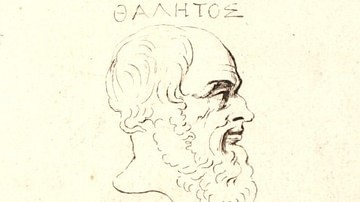
Definition
Thales of Miletus
Thales of Miletus (l. c. 585 BCE) is regarded as the first Western philosopher and mathematician. He was born and lived in Miletus, a Greek colony in Ionia (modern Turkey) referenced as the birthplace of Greek Philosophy because of his high...
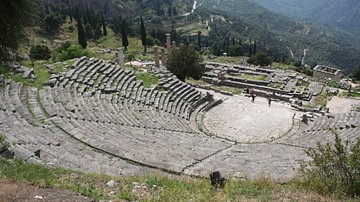
Article
Ancient Greek Inventions
The ancient Greeks are often credited with building the foundations upon which all western cultures are built, and this impressive accolade stems from their innovative contributions to a wide range of human activities, from sports to medicine...
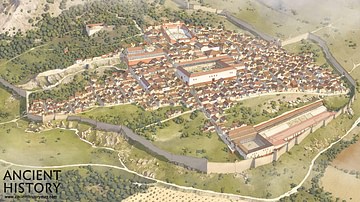
Definition
Ionia
Ionia was a territory in western Anatolia (modern-day Turkey) populated by the Ionians (Greeks who spoke the Ionian dialect) in c. 1150 BCE. It is best known as the birthplace of Greek philosophy (at Miletus) and the site of the Ionian Revolt...
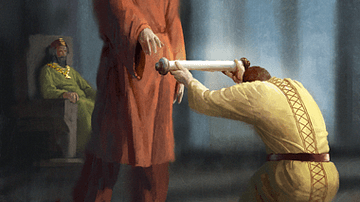
Definition
Artaphernes
Artaphernes (active c. 513-492 BCE, also known as Artafarna) was the satrap of Lydia under the reign of his older brother Darius I (the Great, r. 522-486 BCE), monarch of the Achaemenid Empire (c. 550-330 BCE) which was founded by Cyrus II...
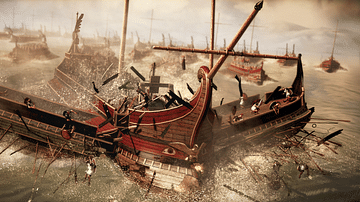
Article
The Delian League, Part 6: The Decelean War and the Fall of Athens (413/2-404/3 BCE)
This text is part of an article series on the Delian League. The sixth and last phase of the Delian League begins with the Decelean War, also referred to as the Ionian War, and ends with the surrender of Athens (413/2 – 404/3 BCE). The...
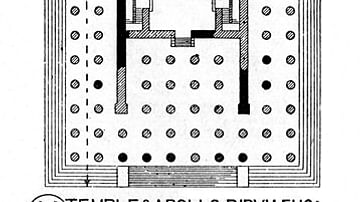
Image
Aerial View of the Temple of Apollo, Miletus
An aerial view (2011 CE) of the temple of Apollo Didymaeus at Miletus (late 4th century BCE).

Image
Statue of Apollo Playing the Cithara from Miletus
Apollo is rendered as a muscular young man. However, the feminine sensuality displayed here is probably caused by his over-emphasized hips. His robe falls below the waist, exposing the external genitals. The fingers (now lost) of the left...
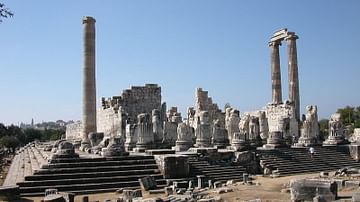
Article
The Temple of Apollo at Didyma
Located about 11 miles south of the ancient port city of Miletus on the western coast of modern-day Turkey, the Temple of Apollo at Didyma or Didymaion was the fourth largest temple in the ancient Greek world. The temple's oracle, second...
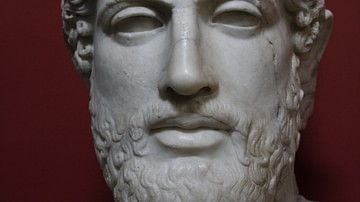
Definition
Pericles
Pericles (l. 495–429 BCE) was a prominent Greek statesman, orator, and general during the Golden Age of Athens. The period in which he led Athens, in fact, has been called the Age of Pericles due to his influence, not only on his city's fortunes...